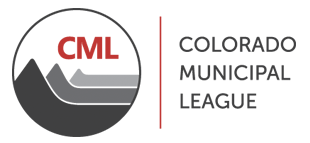SOS Business Licensing and Registration Fees Survive TABOR Challenge
In This Section
By David Broadwell, CML General Counsel
SOS Business Licensing and Registration Fees Survive TABOR Challenge
Since the advent of TABOR in 1992, Colorado municipalities have understood that the adoption of any new “fee” may be susceptible to a legal challenge on the theory that the “fee” is really a “tax” in disguise, and thus requires voter approval. Just last year the City of Aspen showed how to overcome such a challenge when the city successfully defended their grocery bag fee in the Colorado Supreme Court.
But what about fee regimes that predate the adoption of TABOR? For example, since 1983 state statutes have required every Colorado Secretary of State to adjust their fees annually to the extent necessary to cover all of the “direct and indirect” costs of the Department of State. Plaintiffs complained that this regime unduly burdens businesses who pay the fees that cover the majority of the functions of the SOS office, including costs associated with conducting state elections. In an opinion issued on September 23 the Colorado Supreme Court held, since the requirements of TABOR apply prospectively only, the basic fee regime in the SOS office must be upheld because it is “part of a statutory mechanism that predates TABOR.”
This case ultimately turned on a failure of proof by the plaintiffs. They simply failed to show that there had been any new charge or increase in the rate of any existing charge imposed by the SOS since 1992 that would qualify as a “new tax,” “tax rate increase,” or “change in tax policy.” The Supreme Court hinted, however, that the old fee regime does not give the SOS carte blanche to adopt entirely new fees on businesses on discretionary basis, saying such entirely new fees could be “potentially problematical.”
CML supported the position of the SOS as an amicus curiae in this case.
Griswold v. National Federation of Independent Businesses, 2019 WL 4581487 (Colo. Sept. 23, 2019)
